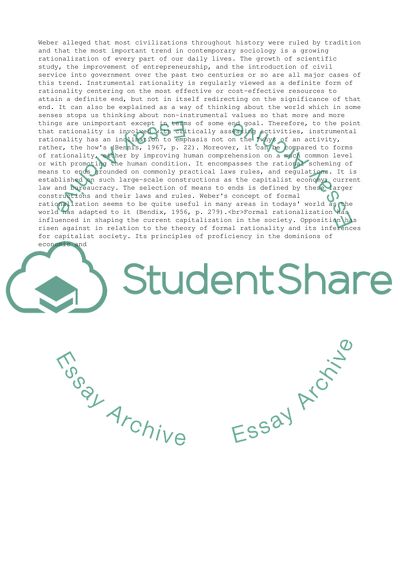Cite this document
(“Is Webers concept of instrumental (or formal) rationality useful today Essay”, n.d.)
Is Webers concept of instrumental (or formal) rationality useful today Essay. Retrieved from https://studentshare.org/business/1682519-is-webers-concept-of-instrumental-or-formal-rationality-useful-today
Is Webers concept of instrumental (or formal) rationality useful today Essay. Retrieved from https://studentshare.org/business/1682519-is-webers-concept-of-instrumental-or-formal-rationality-useful-today
(Is Webers Concept of Instrumental (or Formal) Rationality Useful Today Essay)
Is Webers Concept of Instrumental (or Formal) Rationality Useful Today Essay. https://studentshare.org/business/1682519-is-webers-concept-of-instrumental-or-formal-rationality-useful-today.
Is Webers Concept of Instrumental (or Formal) Rationality Useful Today Essay. https://studentshare.org/business/1682519-is-webers-concept-of-instrumental-or-formal-rationality-useful-today.
“Is Webers Concept of Instrumental (or Formal) Rationality Useful Today Essay”, n.d. https://studentshare.org/business/1682519-is-webers-concept-of-instrumental-or-formal-rationality-useful-today.


